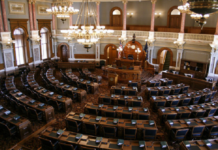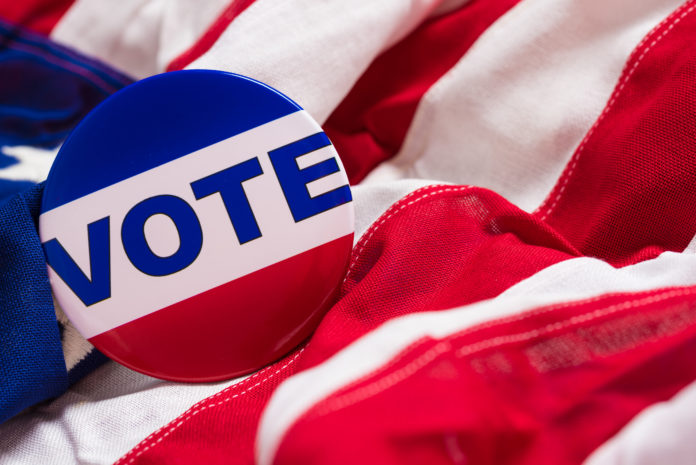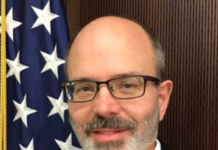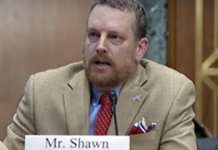A battle over state election laws and how far Kansas should go to make voting accessible is reemerging with bills that would restrict – if not ban – ballot drop boxes and end the grace period for mail ballots.
Voting rights advocates – including the American Civil Liberties Union and the civic engagement group Loud Light – are fortifying for a fight against proposals they say will suppress voter turnout by making it harder to vote.
Supporters say the bills are intended to guard against election fraud in a state where there’s been an undercurrent of questions about the Kansas elections, including an online petition promoted by a state senator calling for a “forensic audit” of the 2020 election.
Just last week, a Senate committee held a hearing on “election integrity,” where a number of skeptics questioned Kansas elections without solid evidence of fraud.
There’s been no evidence of election fraud in Kansas, and Republican Secretary of State Scott Schwab has told lawmakers as much.
U.S. Sen. Roger Marshall has stood by the Kansas election system on national television.
The head of the Republican Party has said there is no widespread election fraud in Kansas, although he distinguishes that from efforts to improve election security.
“If people want to talk about election integrity, I’m OK with that because we want to continue to protect votes in Kansas,” Republican Party Chairman Mike Kuckelman said in an interview last year.
Schwab has touted a Heritage Foundation study that found that Kansas ranked 13th overall nationally for election security.
Yet, Schwab has drawn a Republican primary challenge from former Johnson County Commissioner Mike Brown, who says Schwab hasn’t done enough to fight voter fraud.
Bills addressing ballot boxes and the deadline for mail ballots are among numerous bills that are expected to be considered just months after the Legislature passed a pair of election laws last year that are now being challenged in court.
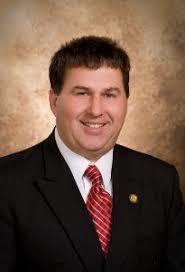
“I’ve got a pretty wide range of election bills,” said Republican state Sen. Rob Olson, chair of the Senate Federal and State Affairs Committee.
“We’re going to dive into about every aspect of elections,” Olson said. “I think we owe it to the people. There are a lot of people on both sides who want us to improve it.”
For instance, Schwab has his own set of bills that he’s pursuing, including one bill that would call for notices to be sent to voters who haven’t cast a ballot for two years to see if they reside at the same address.
If the voter’s address is not confirmed, they would be removed from the rolls if they don’t cast a ballot within the following two federal election cycles, or essentially four years.
He also supports legislation to prohibit Kansas voting machines from being connected to the internet. Voting machines have not been connected to the internet since 1996 as a matter of practice. It’s not required by state law.
The bill requires all electronic pollbooks to be certified with the secretary of state’s office and meet specific security measures to protect voter data.
Democratic state Sen. Ethan Corson of Fairway is worried about where the Legislature seems to be headed with bills limiting ballot drop boxes and ending the grace period for mail ballots.
“We are now going down this path that could end in a place that’s only going to make it harder for eligible voters to cast their vote and have it counted for no good reason,” Corson said. “And to me, that’s sad.”
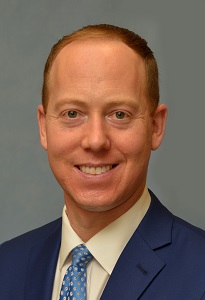
Corson said he’s afraid Republican lawmakers are being led by a small group of people spinning conspiracy theories about elections.
“This stuff keeps coming to us, and there is absolutely no indication that any of this has happened,” he said.
“This is sort of like saying, ‘I’m really worried about pink rhinoceroses and they’re going to take over the Capitol.'”
A Florida-based nonprofit is backing bills that would end the three-day grace period for mail ballots to arrive at the election office and another that places limits on ballot drop boxes, which became controversial when they were criticized by Donald Trump.
The boxes became popular during the COVID-19 pandemic and amid fears that the U.S. Postal Service would have trouble delivering ballots on time before the election.
In Johnson County, about 6% of ballots, or 6,885, were returned to ballot drop boxes out of 111,761 total votes cast in the November 2021 election, officials said.
In Sedgwick County, about 3% of ballots, or a little more than 1,600, were returned to ballot drop boxes out of about 49,066 total votes cast in the November 2021 election, according to the election office.
The boxes came under attack in 2020 from Trump and his Republican allies who went to court to restrict their use in states such as Pennsylvania and Ohio in their battle against voting by mail. Trump called the boxes a “voter security disaster.”
Opportunity Solutions, a 501(c)(4) organization headquartered in Tallahassee, introduced legislation in a Senate Committee that would ban ballot drop boxes.

Stewart Whitson, visiting fellow at the Opportunity Solutions Project, laid out the general parameters of the bill that’s still being drafted.
The bill, which could be officially introduced on Monday, would ban the boxes with a couple of exceptions, Whitson said.
The bill would allow the drop boxes to remain if they are under the personal observation of an election official or their designee whenever the box was available for ballots to be dropped off.
Another exception would allow the boxes to remain if individuals provide the same type of identification that they would if they were voting in person.
“Election integrity is more than about just stopping fraud,” Whitson said.
“It’s also about inspiring confidence in the election,” he said.
“The Kansas Legislature actually owes it to the people that they represent to always be evaluating elections laws, always evaluating rules and procedures,” he said.
“They have to make sure that everybody has their voted counted and not canceled.”
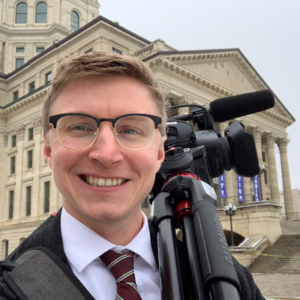
Davis Hammet, president of the civic engagement group Loud Light, said voters would be hurt by the proposals limiting drop boxes and ending the three-day grace period for mail ballots.
“These bills add no new protections to our elections and make election administration more difficult,” Hammet said in a text message.
“The bills would make advance voting more confusing, less accessible and less reliable for voters, and ban safe and secure ballot delivery options.
“The bills are based on vague unsubstantiated claims, but they would cause real verifiable harm to Kansans and our democracy,” he said.
Republican Sen. Richard Hilderband of Galena introduced a bill that would effectively eliminate ballot boxes by requiring voters to return advance ballots personally to the county election office or through the United States Postal Service.
Hilderbrand, like others, questions whether there’s sufficient security around the drop boxes, although in some places, such as Johnson County, officials say the boxes are bolted down and under 24-hour camera surveillance.
“Who know who drops off a ballot in a drop box, how many they drop off and who records it,” Hilderbrand said.
Opportunity Solutions is also supporting a bill that would require mail ballots to be received by the local election office by 7 p.m. on Election Day.
Currently, ballots have to be postmarked by Election Day but can be received by the last mail delivery on the Friday immediately following the election.
A similar proposal was heard in the Senate last year but died in a committee.
Supporters of the bill said it would reduce the risk of voters casting a ballot after Election Day, although there was no evidence to suggest that was already occurring.
They also said it would ease the minds of voters who see vote tallies change as advanced ballots are counted after the election.
Opponents said the legislation would disenfranchise thousands of Kansas voters.
The secretary of state’s office reported that more than 32,000 ballots came into election offices during the three-day period after the 2020 general election.
The office reported that 17,224 postmarked ballots came in on the Wednesday after the election, 10,790 were returned the Thursday after the election and 4,353 came in on that Friday following the election.
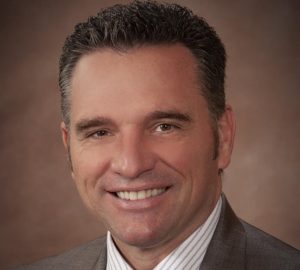
Count Senate President Ty Masterson as a supporter for ending the grace period for voters to get their mail ballots to the election office.
Masterson said the three-day period following an election presents an opportunity for election shenanigans.
“I think Election Day should be Election Day,” Masterson said in a recent interview.
“If you’re voting remote, there’s plenty of warning, advance notice to get your ballot in on time,” he said.
Whitson said it’s not a question of whether there’s really a matter of widespread fraud in Kansas, but rather how much faith they have in the system.
“The point is people’s perceptions matter,” Whitson said.
“It matters whether they have trust in the outcome of the election. So, that’s why putting these things in place can help achieve better results for everyone.”





